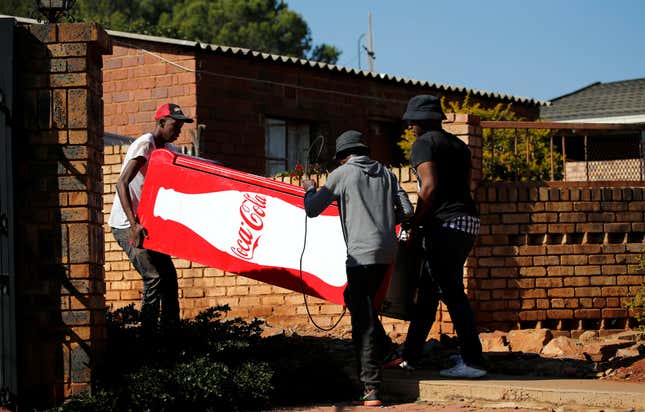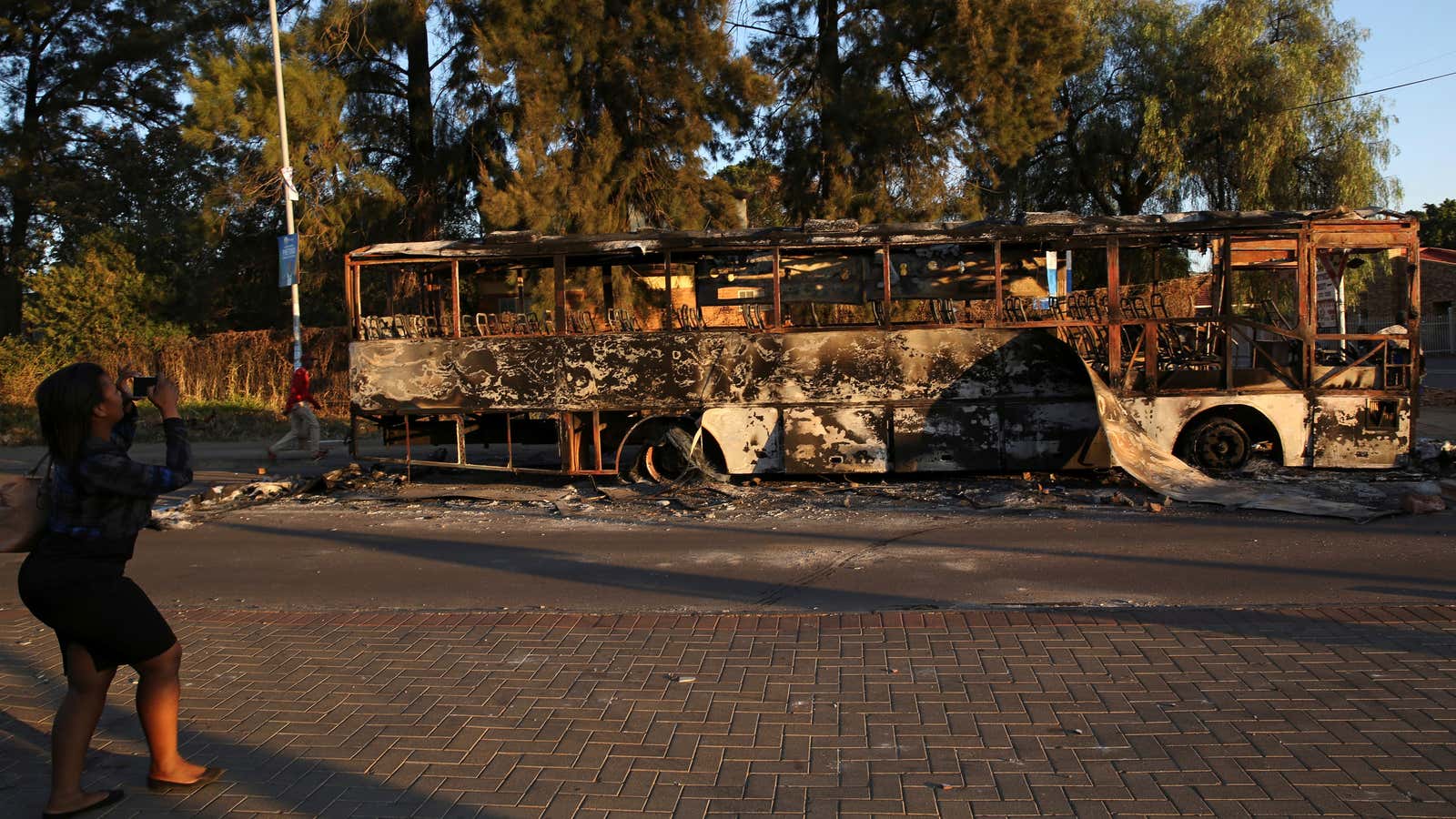Once lauded by the international community for a peaceful election in 1994 while other voting African nations devolved into violence, South Africa is now contending with pockets of deathly unrest directly linked to local elections to be held throughout the country on Aug. 3.
In the capital city of Pretoria, recent chaos gripped some of the city’s poorest townships for nearly a week as protesters burnt buses and cars, blocked roads, and looted businesses in rejection of a mayoral candidate they believed was being forced onto them. Five people died and about 200 people were arrested before the violence was finally quelled last Friday (June 24).
Voters in the Aug. 3 elections will decide which parties will govern which cities and municipalities. They also will choose their local ward councilors, the political officials who arguably are closest to the ground and to the voters.
The week of protests in Pretoria was preceded by the murder of an African National Congress (ANC) member, who was shot when gunfire broke out between two fighting factions of the ruling ANC party. In the KwaZulu-Natal province, five people were killed this month; their deaths were linked to disagreements over candidate lists for the ruling party in Pietermaritzburg, the province’s capital. In two other cities, Durban and Port Elizabeth, violent protests erupted over candidate lists.
South Africa is no stranger to protests, of course. Mass demonstrations, often violent, have been a part of the country’s public discourse since the apartheid era. In the democratic era, it has become the most attention-grabbing method to complain about poor service delivery, like the lack of basic running water and electricity. But with an election a few weeks away, these protests take on a more ominous tone, one that may spark fears that South Africa is headed toward the kind of violence seen after Kenya’s 2007 election, which left an estimated 1,200 dead and around 600,000 displaced. No one expected extreme violence in relatively peaceful Kenya then.
“I think it would be a bit remiss if we became so hyped to say that we’re facing problems of Kenya 2007,” says Ebrahim Fakir, a political analyst who also works with the Electoral Institute for Sustainable Democracy in Africa, a nonprofit research and training group. “That said, some of the elements, the toxic mix that made for combustion in Kenya, are certainly present.”
Some of those elements include a sharply declining trust in public institutions and the systems that manage them, especially, Fakir says, South Africa’s Independent Electoral Commission (IEC), which manages the country’s elections. But unlike Kenya’s electoral institutions, South Africa’s have been made more robust with strong checks and balances, he adds. For example, opposition parties suspicious of the IEC’s activities could always take the agency to court, as they have done before.
In Pretoria, the recent violence was connected to the ANC’s struggles within in its own divisions. After disputes between the incumbent mayor and his deputy, both members of the ANC, the party intervened by appointing its own mayoral candidate: Thoko Didiza. She has a long track record as a government administrator and has kept herself above the fray of city politics, but her run has sparked outrage among protesters, who object to her candidacy on grounds ranging from ethnic differences to accusations of corruption and patronage. The ANC has blamed its own members for stoking the protests. Others have blamed criminals, who used the chaos to loot local shops, often owned by African and Asian immigrants.

While the ANC is unlikely to lose at the polls any time soon, what we may be seeing now is the slow dismantling of Africa’s oldest liberation movement.
“I think it’s just the natural breakup of a manufactured consensus,” says Fakir.
In the honeymoon period after the end of apartheid, it was easy for the ANC to focus on a single enemy or single vision to help stoke the country’s development. Now, divergent interests are pulling the party in different directions.
This doesn’t have to consign the country to violence, of course, but it comes with important context: As much as the political miracle of a peaceful election in 1994 was part of South Africa’s post-apartheid identity, so too is corruption, dissatisfaction, and violent protests.
